Our Living City: Life in Co-ops in False Creek South
We visited Nancy, Dani and Matt, Christie and Mike and their son Jesse who live in co-ops in False Creek South to learn a little about how they live, what is of value to them, and how this way of life makes up a distinct part of Vancouver, with its very own identifiable culture. Our hosts encompass a range of experiences living in the co-op, from relatively recent arrivals to lifetime residents. They tell us how they think living as and participating in a community in False Creek South has affected them and how they see what a fulfilling life in Vancouver is. We’ve tried to capture this very human experience of living in a co-op in this particular part of the city and what that looks like.
Disclaimer: The views expressed below belong to those being interviewed and do not necessarily reflect the opinions of Heritage Vancouver.
All photo credits to Ben Geisberg
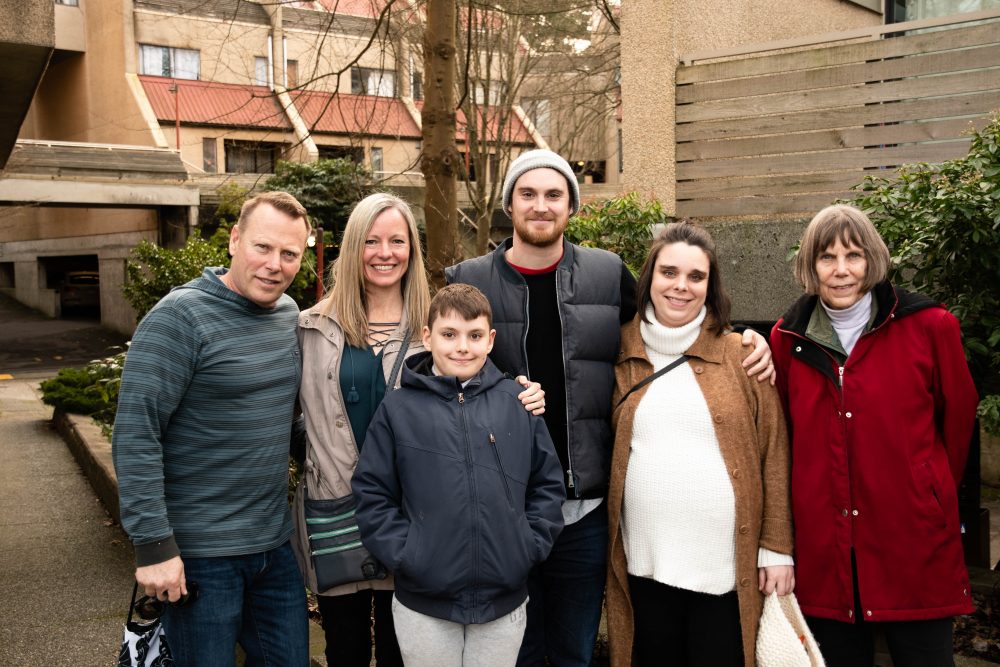
How does living here give you a sense of living a meaningful life?
Matt: To me, the meaning of life is being able to spend time with close family and friends as well as getting outside of that tight circle. This inherently provides that connection; there are some people who wouldn’t normally be in my tight social circle but this place has allowed me to connect with them and take stuff away from those relationships.
Dani: I grew up in this co-op [but moved out and moved back in]. I have childhood connections with people from this co-op. There is something special about living here. Interestingly, when we [Matt and I] weren’t living here, we were seeking the feeling of co-op; when we moved in together, we were sharing a house in Kits with 5 other people. We chose to have roommates, both due to financial constraints and trying to create community. We were living up on 25th and Willow, and there wasn’t much interaction between neighbours. I wasn’t getting that connection so we almost had to invite it into our lives. But in the co-op, it’s not forced but it naturally cultivates.
What happens in the co-op that prods these interactions?
Dani: I think it’s the sense that there is the centre community. For this co-op, there’s a little playground in the centre. With me growing up, it was always meeting with other kids in the centre, we’d eat dinner together, then the parents come out and they’d start interacting, or just helping out. When it snows, people come out to shovel. We’re all working together to make the co-op work.
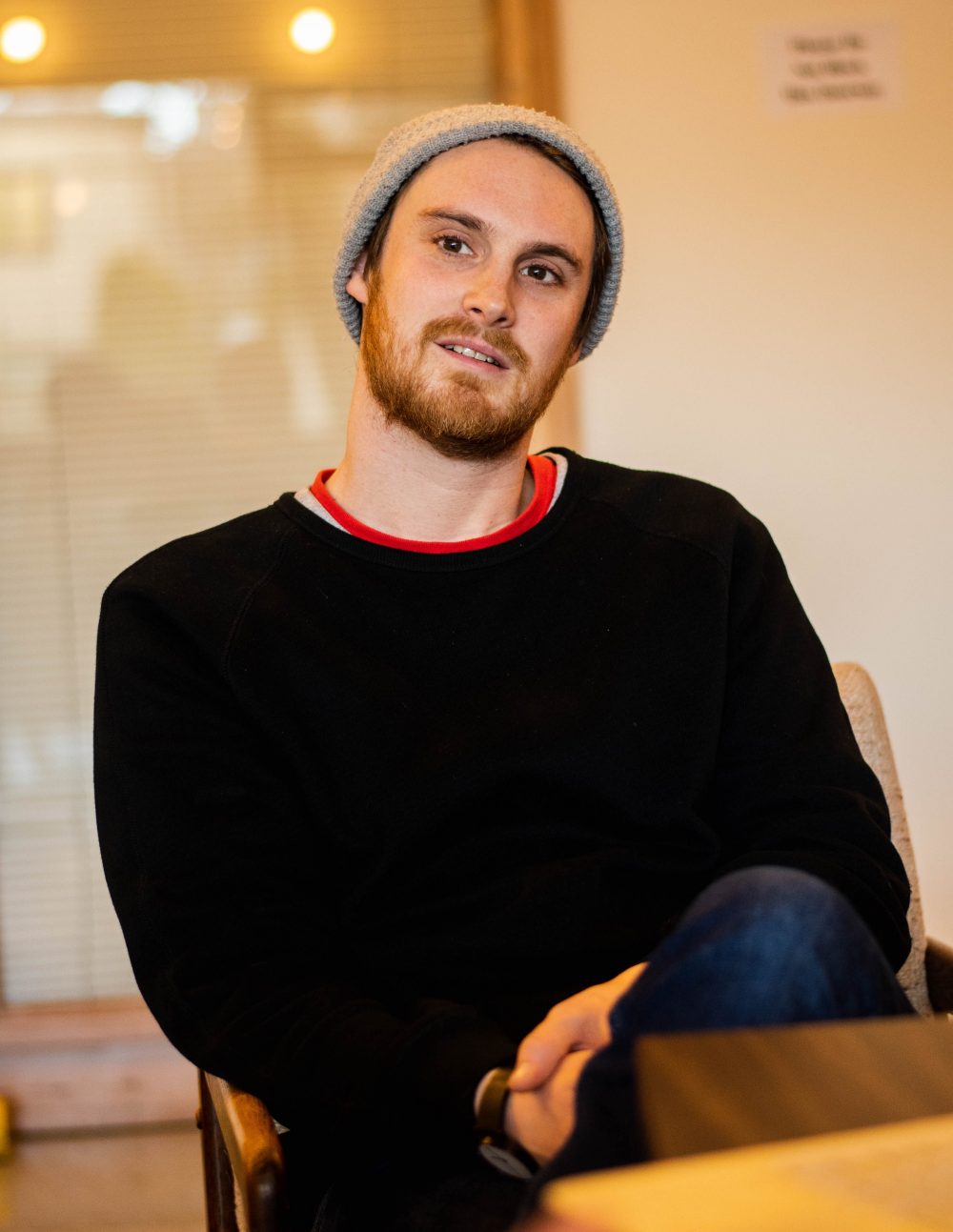
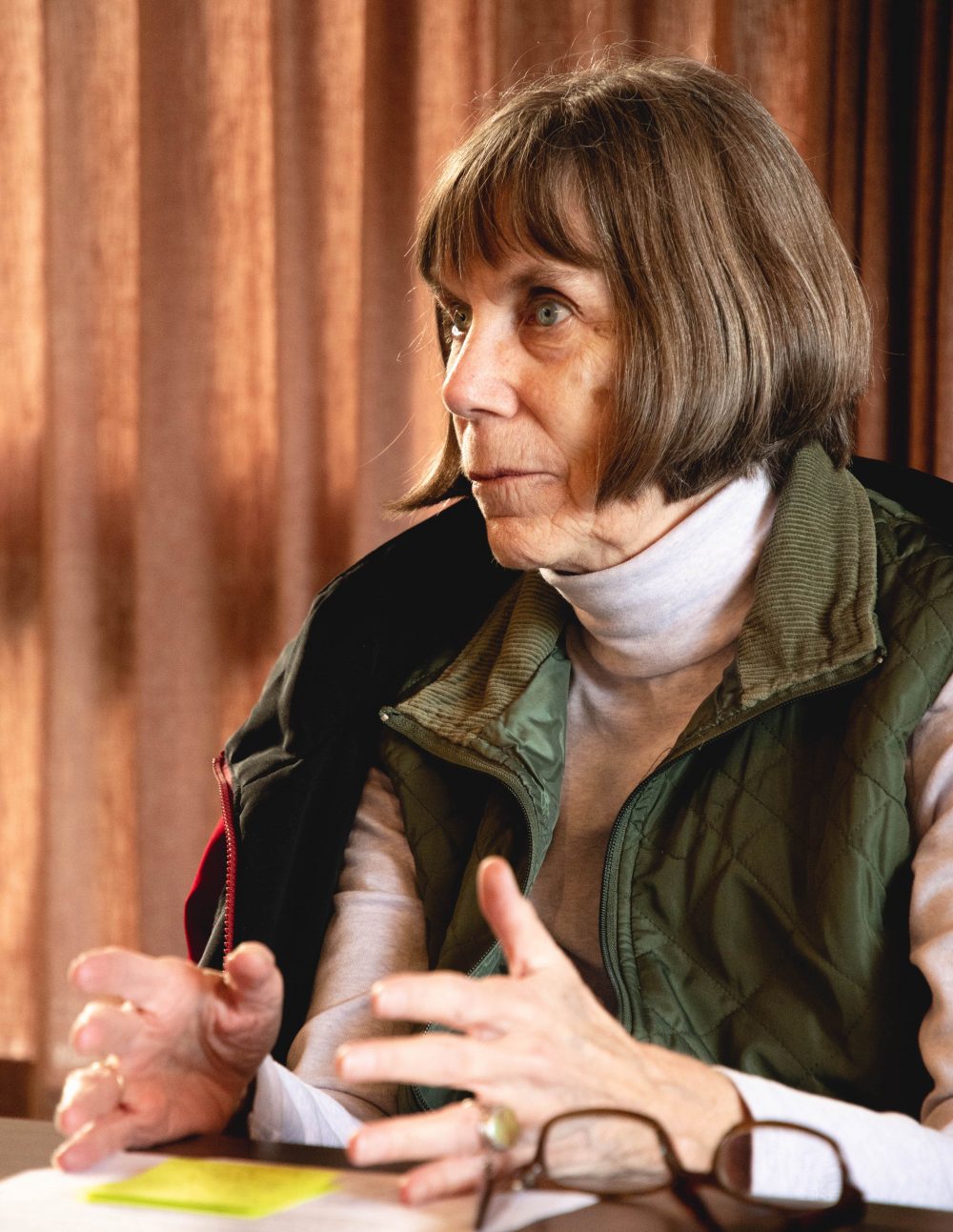
People coming out to help, is this a felt obligation everyone feels they need to do?
Dani: For me, it is. There’s a sense that I need to come out and make it safer and you run into two or three other people. Also, when we have a lot of leaves there are people who will pick up a rake for like half an hour.
Matt: I saw a neighbour taking down amazing Christmas lights and I thought ‘oh he’s taking them down all by himself’ and I felt obliged to help. He was all alone and I had nothing to do for the next hour so I went out and helped him take them down. I felt that I benefited so I had to reciprocate.
Nancy: People in strata can cooperate on things like this, or have things like neighbourhood parties, but the thing about co-op is that it is designed, both organizationally and structurally, so that people work together. We have boards and committees which aren’t just about taking care of and running the buildings but it’s about the children’s committee, the annual picnic, the aging in place committee, the gardens committee and the “do your bit” committee. So the structure of the organization is a culture of community. Like the buildings here are designed for community, so are co-ops organizationally designed to create community. We have our problems too, not everybody walks along and helps somebody with the lights but by and large, in a co-op, you’re more likely to find that because that’s what people are coming for.
Because you [Dani] lived here before as a child, was it any easier to get into the co-op once you applied to move back in because they recognized you had the values?
Dani: No. We still went through the paperwork, the interview, going on the wait list. We waited almost five years.
Matt: There were definitely moments where we wished that there was some nepotistic fast track to get in here right?
Nancy: You can’t get in just because you know somebody or just because you grew up here. I waited for five years, you waited for five years, these places aren’t easy to get into. We actually have quite a rigorously designed application process.
Matt: We loved the idea of co-op living but we didn’t apply to anywhere else because I had seen her [Dani’s] lifestyle here with her family when I was a teenager. She just wanted to be here.
Dani: It’s home for me and I was willing to wait. It’s not guaranteed.
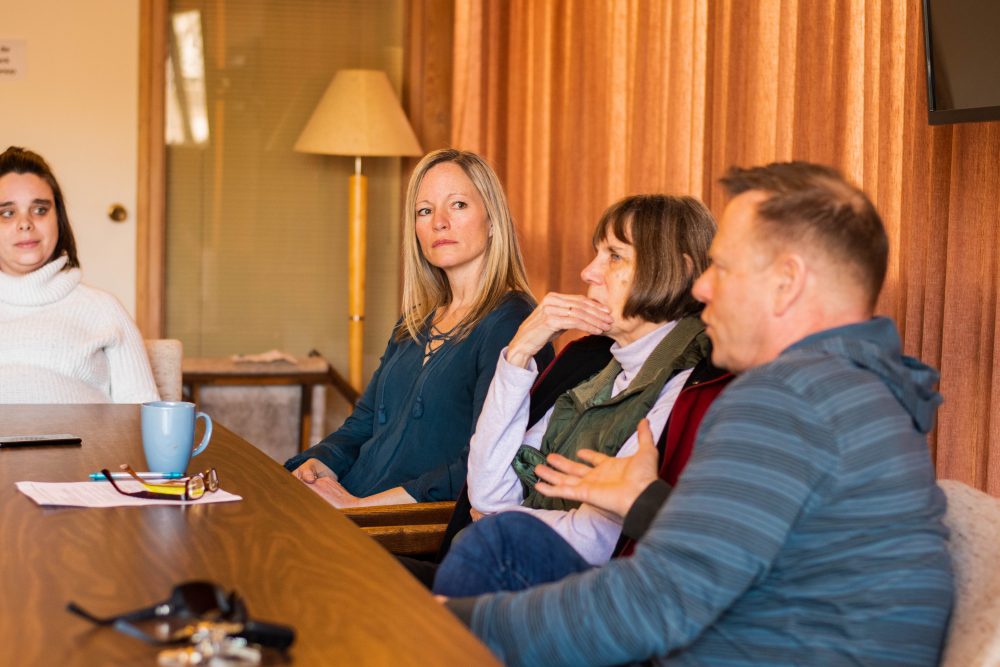
Do you think people who apply for co-op housing choose it based on finances rather than being a part of the community?
Nancy: The coop culture brings them in and they adapt. I don’t think someone who does not want to be communal in some way would be attracted.
Dani: You have to be a type of person that wants the communal living. Often when I say I live in a co-op, people ask, “What is that? How does it work?” There’s a lot of curiosity around it. It’s not just that it’s affordable housing.
Matt and I both decided long ago that Vancouver is our home, we both grew up here. How would we make that work and have a quality of life? We want to raise our kids in Vancouver and this is the one way to achieve that. For us, there’s the added bonus of the communal living that we both seek out.
Matt: When thinking about long term plans for our family, buying was always out of the question.
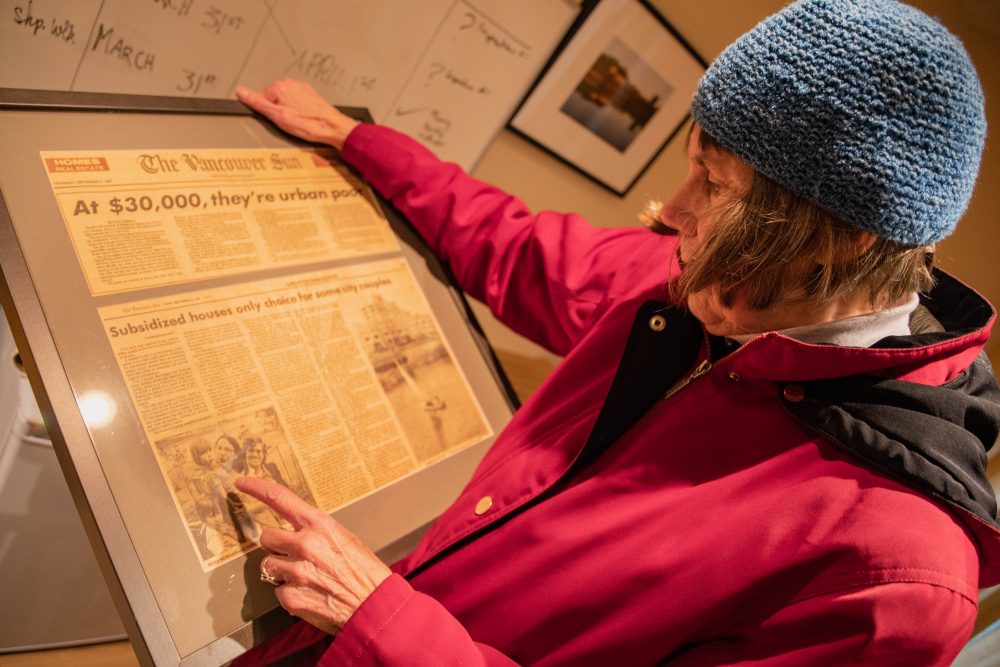
Can you give me an example of something you do which embodies a core co-op value?
Nancy: We’ve had several people who have dementia and have taken to wandering around. We’ve created several stairwell groups of people who live nearby and keep an eye on them. The stairwell groups meet and decide that they need to tell the police, the community centre, the Broadway Lodge, who this person is and where they live. That way, if they find them wandering, we can go and pick them up. It’s not official, not the co-op board doing it, it’s neighbours. It’s helped my friend; people know her and love her and we’ve figured out this way to help her stay in her unit. People have made sure she’s had meals. We don’t do all the care, but the neighbours and her sons have helped her stay in her unit. We just one day said, “Come on over for tea and we’ll figure out what to do.” There’s also examples of young parents who will pick each others kids up after school on different days of the week and then coordinate so they can stay at each other’s houses on the weekends so they can go away for a few days even.
Christie: When something comes up, like a neighbour having to work an unexpected few hours late, they can just come over that morning and ask if we can grab their kids after school; the school is conveniently right beside our co-op. So I’ll say, “Yeah, no problem” and if I am unable to do it I’ll find somebody from within the co-op to help out. We all know each other well so we can easily help each other out in a pinch. We often do that.
Nancy: We have a few bands in my co-op, teenage kids who play music. In one case it’s two boys from one family and two boys from another family, the two dads and mom of one also plays; they perform at the summer at the picnic in our co-op. In this band, one of the dads died so the other sort of took over and helped the kids keep going with their music and keep that tradition going. The co-op emotionally moved in to help with the loss of this dad.
What is your co-ops contribution to the culture of Vancouver?
Christie: Community feel; a good vibe. In the world there’s lots of trauma, so it’s a really good solid, core group that people can build from. We all take care of each other and we all share everything; whether it be support, ‘hand me down’ clothing, food. Our neighbours will drop off home cooked meals by our door. Sometimes we’d have had a bad day but come home and there’s baked goods at our door. Or, a co-op member, knowing we have a 12 year old boy, will drop off clothes for him that their son has just grown out of, or sporting equipment that they are finished with. It makes you feel so good when the people you live beside take care of you like that. We all just take care of each other like that.
Nancy: Also the temporary modular housing over by Olympic Village, co-ops were very active in supporting that, not alone, but with the rest of the community.
Where does that come from? You read the news and see these are problems in our society?
Mike: Core values.
Everyone: Yeah. Core values.
Mike: It’s very different. I didn’t know anything about co-ops before I moved in. Once we became members, we started to get a handle on what the co-op is about. A huge benefit is knowing your neighbours. I just don’t think that that happens in any other neighbourhoods. I’m actually from the 41st and Dunbar area, which is where I grew up, and that’s an area now that’s just filled with empty houses. For [our son] Jesse, this is a really great spot to grow up.
Dani: I think everyone deserves to have a home and a sense of community and that is really at our core value of why we decided to live in a co-op. When you see people who don’t have that opportunity, if there’s the ability for us to help someone in that way, of course.
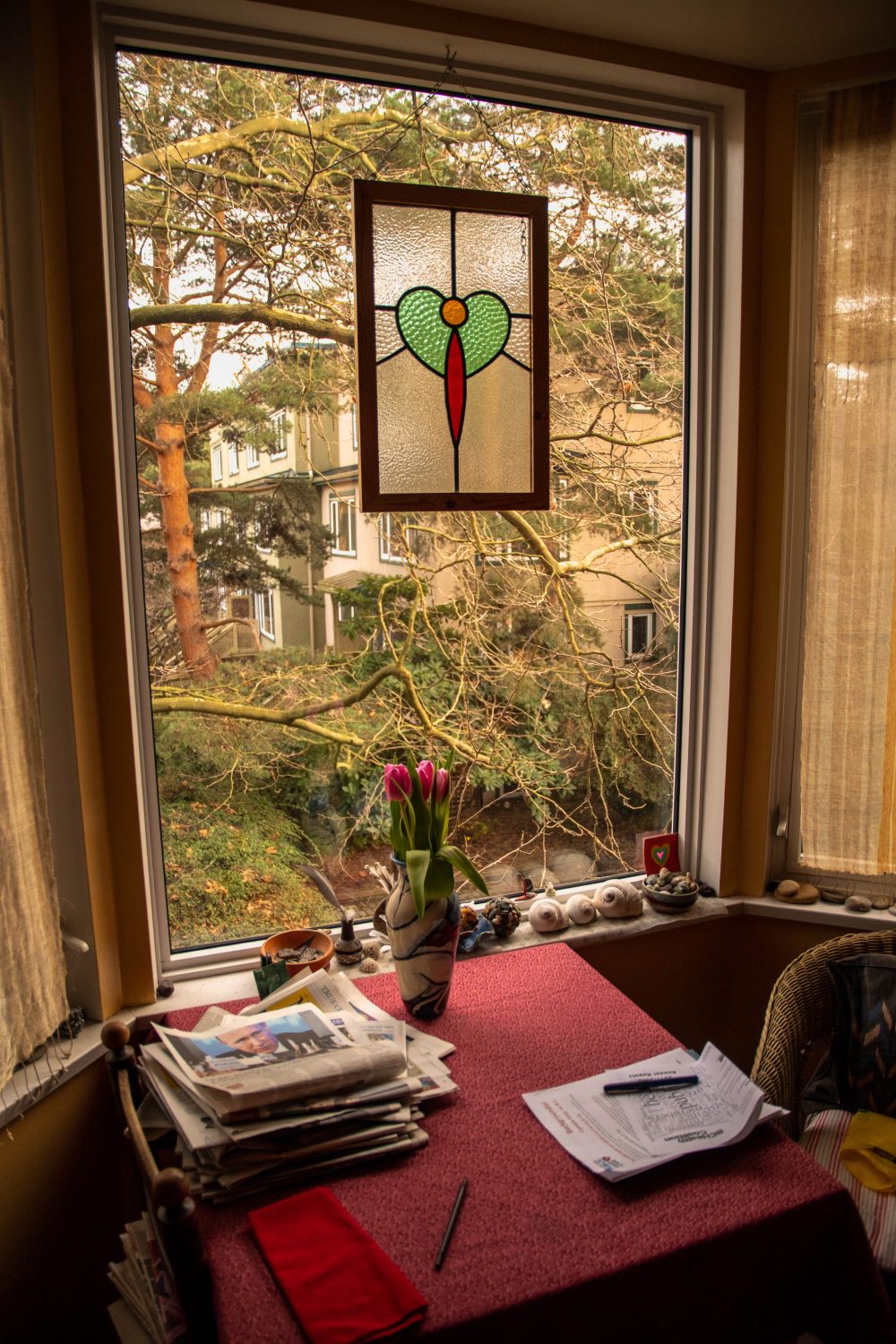
What do you wish for your son [Jesse] that you get living here?
Mike: Just the values. If he picks up some of the values happening within the co-op he’ll benefit.
Christie: Values like, lending a hand. Raking the leaves. He saw somebody raking leaves and said “Oh I’ll go help.” He sees everybody else doing it and so he realizes that he too can go help. So he grabbed a rake and just started raking.
Dani: Yeah, he picked up where we left off. We ran out of time or something and he just went in and started doing it, it was amazing.
Living in this co-op, you don’t have any equity in your home. How do you think about that when there’s been a lot of discussion and media coverage around being able to sell one’s home for a good retirement?
Mike: I have a twin brother; he bought a house in Tsawwassen a little earlier than us moving into the co-op. We were lucky enough to get into the co-op here and the outcome has been very different. Looking at the books, financially, he’s done really well in that house. I kind of look at it, so he’s in Tsawwassen, he’s driving in an hour and fifteen minutes every morning and then back again. I don’t think I’d switch with him. Now I understand he’s got a piggy bank as far as the equity in his home but in my opinion, it still doesn’t outweigh the lifestyle that we have here.
Christie: It’s not that you can’t save living in the co-op…
Mike: Yeah, you just have to have your mind set when you come in that there’s never going to be equity there. I think some people in the co-op say that no, no, we do own, we all own and that’s true but it’s not a financial gain.
Nancy: But you don’t have equity.
Mike: I think that’s a big difference.
Dani: I think you just have to look at your future and your planning with a different mindset.
Nancy: But I think security of tenure is the payoff.
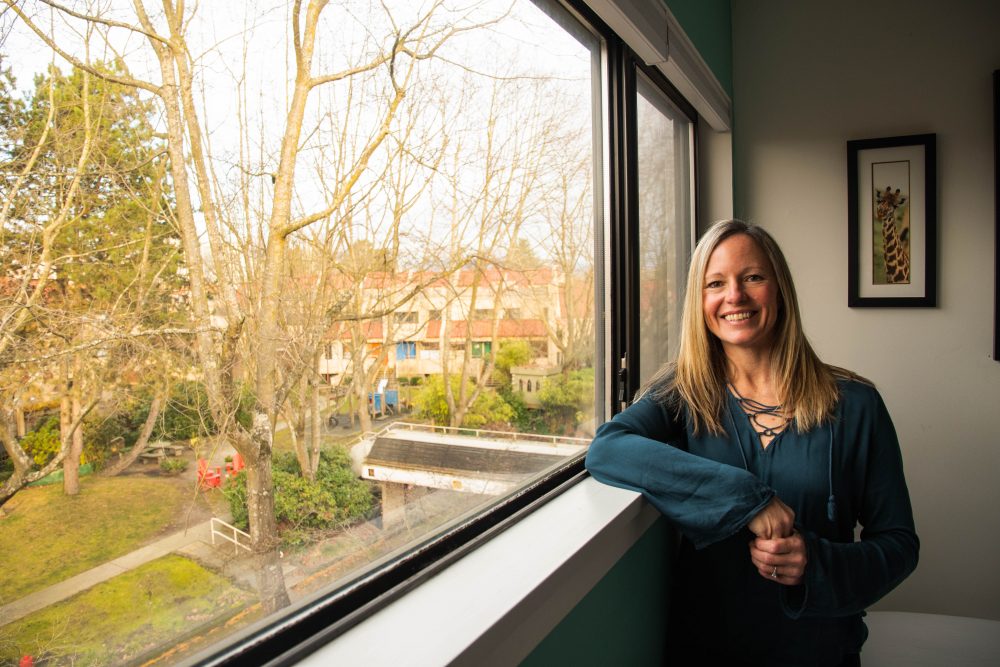
What is the impact of the natural environment on you here? This is a big feature of False Creek South.
Dani: I really missed the ocean. The smell of it, the sound of seagulls; I grew up around it. To me, it’s calming and this is home to me. The environment is huge for my mental health.
Christie: It’s active. We walk our dog around here and take Jesse to every park around the seawall. We walk or bike everywhere now.
Mike: It’s a really different lifestyle here, just really unique. Jesse leaves at 5 minutes to 9 to go to get to school and walks to school, no cars or anything.
Dani: A lot of it is biking. We bike, we walk, the bus is so easy, we really don’t take the car.
Nancy: From my house, I’ve seen red-wing blackbirds, herons, hummingbirds, chickadees, junkos, squirrels, coyotes, and a beaver and otters. Also hawks, eagles, even an owl who stayed for two weeks. I’m on an upper unit and my place looks into the trees and I feel like I live in a treehouse; it’s paradise.
Matt: And that’s what I think a lot about for our daughter. For her to grow up here. Like that’s a forest., she lives between the forest and the ocean. She has a waterfall in her backyard, it’s just the dog park, but still it’s so magical. And all the animals you just named too, we’ll see those while we’re walking to go to Granville Island. It’s just a very enchanted place I think.
Nancy: There’s a heron that sits on Shorepine in this one tree a lot and there’s another heron that sometimes sits there too. The kids are the ones that report on that and they’ve named the primary heron Eggbert. We all know that it’s Eggbert and they all know it’s a heron. So the kids pay attention.
Matt: It does inspire curiosity. The beaver that you were talking about…
Christie: Everybody talks about the beaver and we will relay the sighting of him to each other if we see him in the pond.
Dani: The turtles in the pond. My daughter’s like, “What do the turtles do in the winter when it freezes?” So it does spark curiosity not just about the animal but also how the ecosystem works.
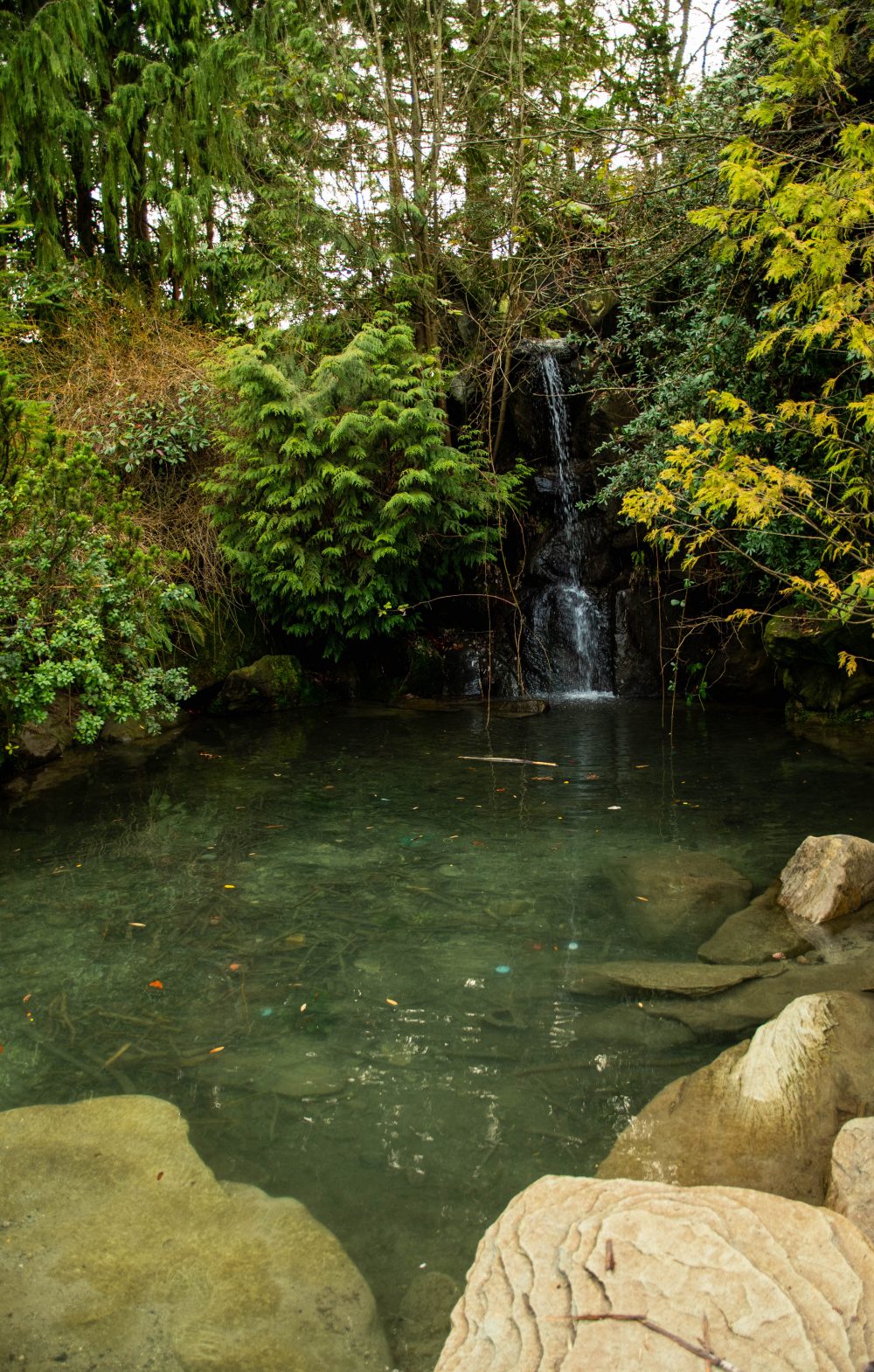
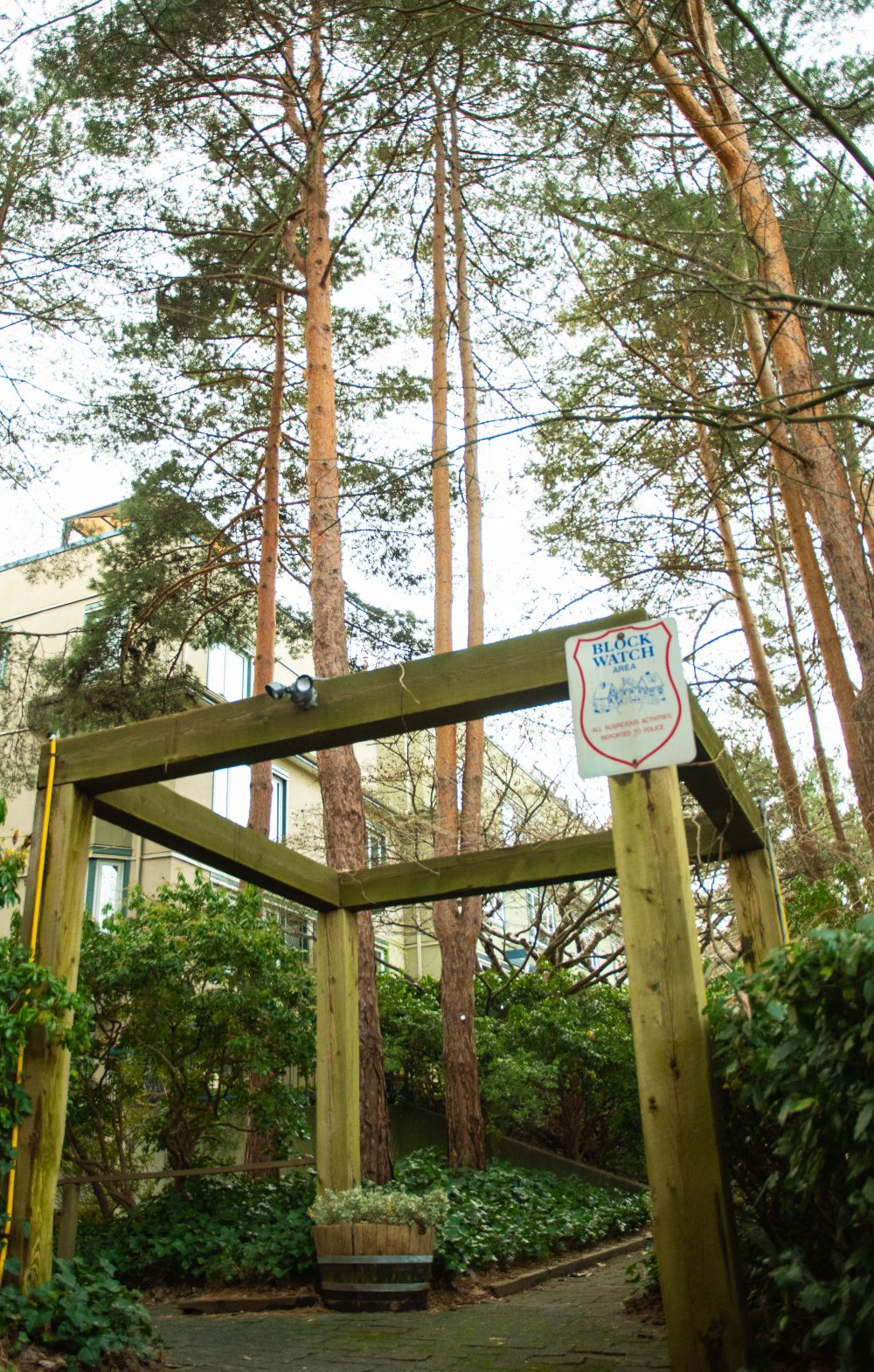
Do introverted people do well in co-ops?
Nancy: I’ve lived in a communal house where you just have a bedroom and everything else is communal and I am an introvert. I don’t like parties, I like to see people one or two at a time, not twelve around a table. I love being by myself in my place. There’s no forced activity and you have private units; nobody is knocking on your door saying you have to come out and do this and do that and be part of the group. It’s a combination of public and private space and activities.
Dani: You choose what you are comfortable with.
Nancy: We have three or four elderly women who are really shy. They don’t come to the big two annual meetings. When we had the management changeover, they wouldn’t come to the meetings where we were discussing it. They had questions and issues but wouldn’t come out. So we started having coffee sessions in the boardroom. We advertised that on Tuesday and Thursday, there will be somebody from the transition committee meeting, no more than ten people and we’ll have tea/coffee. They were shy and didn’t want the big community process so we created a small community process. We figured out how to make it work for them.
Christie: Introverted people still have things they want to communicate or participate in. There are certain committees that work for introverts; like the gardening committee where you can tend to the plants around our communal spaces. There are lots of different ways to be involved; smaller committees you can be on or starting up your own committee. If you’re feeling outwardly and want to be with other people, you can easily do that. But otherwise, there are many ways to be a part of the community in a more subtle way. The nice thing is that the co-op needs all types of people and we all know everyone has something to offer in their own way. That’s why the co-op works so well, we value everyone.
We acknowledge the financial assistance of the Province of British Columbia.